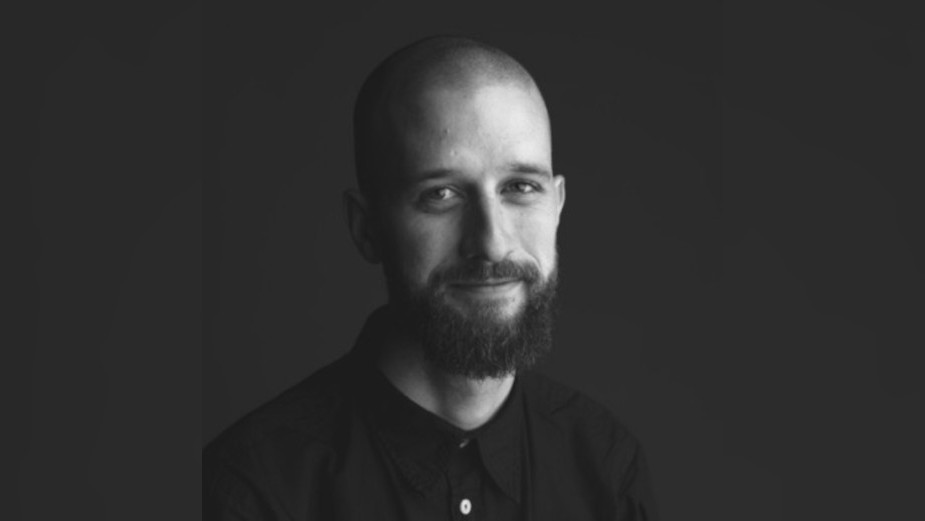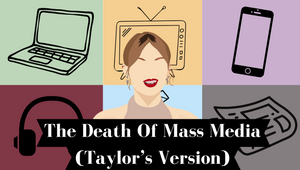
Planning for the Best: The Hunt for Insightful Solutions with Sam Butcher

Sam is a planning director specialising in the bringing together of behaviour change and marketing science. Over the years, Sam has had the privilege to position, grow and execute some of Australia's most iconic and well-known brands such as Vegemite, Bega, The NRL, Jetstar and World Vision Australia. Highlights of Sam’s career include building B Honey, a new entrant to the honey brand designed to save the bees, renaming Australia's premier sporting event State of Origin to State of Mind (as part of promoting men’s mental health) and working alongside a host of other agencies in 2017 to create work for the movement for Marriage Equality in Australia. Outside of work Sam is a classically trained pianist and can be found playing the odd gig around Melbourne from time to time.
LBB> What do you think is the difference between a strategist and a planner? Is there one?
Sam> If there is a difference, to me it’s about the behaviour each job title encourages in the person doing it. Strategy is at its worst when it’s performed as ‘the man on the mountain’: the lone genius, who works alone for weeks and then suddenly delivers a 15-page brief before disappearing again in a puff of white smoke. I’d say that a lofty title like ‘strategist’ probably implies that this is indeed the way you should do your job, more than say being a ‘planner’ does, which has a bit of a ‘hands on’ vibe to it, and therefore probably makes it a more useful title.
LBB> And which description do you think suits the way you work best?
Sam> Planner feels best to me. You shouldn’t treat briefs as the end of your involvement. They are there at the start to focus the work, then they are relied on to help shape the idea to meet the business goals as it evolves and then they are there to help roll out the idea in the best way possible and of course, sell the shit out of the idea. Planning is at its best when hands-on, cross-discipline and when it’s far more interested in being useful, than brilliant, which is by far my preferred way of working.
LBB> We’re used to hearing about the best creative advertising campaigns, but what’s your favourite historic campaign from a strategic perspective? One that you feel demonstrates great strategy?
Sam> Maybe because, alongside sex, money and religion, politics is one of ‘those’ topics you’re not supposed to talk about, that we never really look to the world of elections and political spin for examples of great strategic work.
For me, this is a big mistake. The political world has some of the smartest and most dangerous thinkers and yet we barely know the names of people, who shape consumer attitudes on a mass scale. The 2015 campaign to re-elect David Cameron by the so-called ‘Wizard Of Oz’, Lynton Crosby, is one of the smartest ‘nudging’ and agenda-setting campaigns in history – the billboard of Ed Miliband in Alex Salmond’s pocket, is copied the world over to this day. Or look at Republican pollster Frank Luntz’s ‘War On Terror’ memo – the clarity of thought and powerful directives on language are second to none.
I think this world of work raises the bar for our industry. It shows we should be thinking about how our work can genuinely shape consumer attitude and behaviour, not just put a few reasons to believe in front of them. It reminds us that advertising is about influence, not information.
LBB> When you’re turning a business brief into something that can inform an inspiring creative campaign, do you find the most useful resource to draw on?
Sam> Nothing beats informal and regular conversations with the client. Sure, they gave you the brief, the background slides and the latest research, but beyond all that they’ve got the anecdotes, insights and exciting observations in their head and it’s our job to create a safe and creative environment to help them express these. It’s in these conversations you learn something amazing about the DNA of the company, or some quirky behaviour associated with the brand/product, that will really make your creative team sit up and listen.
LBB> What part of your job/the strategic process do you enjoy the most?
Sam> I count myself lucky that I’ve worked with some of the brightest creative minds our industry has to offer. And I think finding an insight or tension, or ‘way in’ that makes their brilliant brain light up, is what gets me excited the most in the day to day.
LBB> What strategic maxims, frameworks or principles do you find yourself going back to over and over again? Why are they so useful?
Sam> Nothing can replace the hunt for an insightful way into a problem. It’s what separates the great from the good in our industry. An old boss told me he felt planners were all ‘fishing in the same pond’ for insights, and that’s why work was increasingly turning out the same. I think it’s a good challenge to ask, ‘ok I’ve found this thought/insight/thing, but could other planners have found this too?’ And if your answer is yes, you haven’t dug deep or laterally enough into the problem.
LBB> What sort of creatives do you like to work with? As a strategist, what do you want them to do with the information you give them?
Sam> I’ve tried to work by the rule that if the brief is the first time the creative team is seeing your strategy, you’ve done it wrong. I like working with creatives who want to get ‘upstream’ together, closing off a bunch of doors early to save time, and then finding a singular exciting way in, which they can effectively ‘go deep’ on with their time.
The best responses I look for are ideas first, executions second. You want an expression that could work in a pub setting, a simple powerful sentence like: ‘you know X, well what if we did Y’, with ‘Y’ being some delightful/disruptive/novel way at the solution that makes you smile. I once heard that the Espresso Martini was created after someone asked the bartender for a drink that would ‘Wake me up and fuck me up’, and I think that’s a good guide for the kind of single-minded delightfulness we should aim for. If an idea can work at that conversational, human level, without needing a deck, manifesto or ad behind it, I think that’s when you know you’ve got something special.
LBB> There’s a negative stereotype about strategy being used to validate creative ideas, rather than as a resource to inform them and make sure they’re effective. How do you make sure the agency gets this the right way round?
Sam> Ultimately, advertising is about distinctiveness, gaining attention and charming ideas. This means that lateral thinking rules, and in my view, the most brilliant lateral thinking is what we should be seeking, not being worried about the process by which we got there or who came up with it. Strategy should stop being so precious about having cracked ‘the solve’ or being ‘first’, and more concerned about being useful enough to provide a brilliant offering of interesting nuggets for your team to work with. Reverse engineering strategy around a brilliant thought isn’t not ‘strategy’, it’s a litmus test for ideas and a creative way to further interrogate and shape them. It’s also dangerous to suggest that only one part of the agency does the thinking while another writes the words/paints the pictures. All the marketing science and processes in the world can’t help a boring idea that no one pays attention to.
LBB> What have you found to be the most important consideration in recruiting and nurturing strategic talent? And how has Covid changed the way you think about this?
Sam> I think culture is the number one thing people are looking for these days and covid has only accelerated that. For young planners, this means communicating that you have a culture where it’s 1) ok to fail, 2) ok to explore widely and 3) they won’t be stuck at the bottom of a rigid hierarchy. I think this is brilliant for our industry because we’re encouraged to bring in different thinking, and held to account for how well our agency is keeping up with the positive winds of change in the industry.
LBB> In recent years it seems like effectiveness awards have grown in prestige and agencies have paid more attention to them. How do you think this has impacted on how strategists work and the way they are perceived?
Sam> I think our industry is still plagued by too many false notions of how advertising works. In recent years, advertising has begun to blur with the ‘self-help’ category. We promoted ‘gurus’ of the Gary Vaynerchuck and Simon Sinek variety over real marketing science, and now we’re swimming in bullshit marketing theories that are more ‘Eat Pray Love’ than they are ‘How Brands Grow’.
Within this context, awards are a great opportunity for planners to take back the narrative and demonstrate the power for business of effectiveness driven creativity. Awards offer us a chance to be rewarded for the discipline real growth requires. While also on an individual level, they are a brilliant way to put your own thinking on trial.
LBB> Do you have any frustrations with planning/strategy as a discipline?
Sam> Advertising is probably the best job in the world, we get paid to think about ideas and creative ways to solve problems. But the creep of our reliance on research does concern me. More and more ideas are dying deaths by a thousand slides in the name of ‘testing’. We need to be honest and recognise that there is a limit to what research can really tell us. Focus groups full of people who do focus groups, will never be as powerful as the science on effectiveness or a charming idea.
LBB> What advice would you give to anyone considering a career as a strategist/planner?
Sam> I think what’s most important is understanding what it means to put yourself out there with your creativity. I had a uni job playing piano in a small restaurant owned by a lovely old woman and her three identical daughters. The space held maybe 8 people and sitting on the piano stool I literally had my back touching the person of the table behind me. In this small space, you heard every bored sigh and every complaint, — but equally, you heard every time a conversation was hushed so they could listen to you finish, and then applaud. When it comes to creativity, the only way to get to the good stuff is to constantly seek the challenge of entertaining your audience. Resilience matters far more than inspiration in this context and so if you can cultivate that, you’ll do well in adland.













